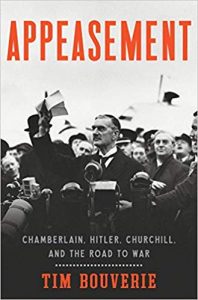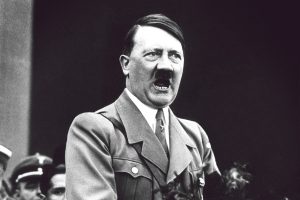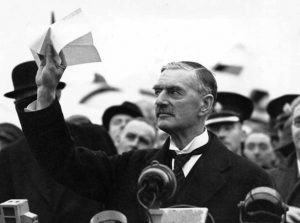StoryElement
Prophecies of Impending War

Winston Churchill, Parliament Square, London © Sue Lowry & Magellan PR
January 1, 1970
Hitler became Chancellor of Germany on 30 January 1933. At the time, Churchill felt the Nazi party were ‘the most formidable people in the world’.
In 1935, Churchill said: ‘We are faced, not with the prospect of a new war, but with something very like the possibility of a resumption of the War which ended in November, 1918’ (Churchill, 19 March 1935, cited in Langworth: Churchill: In His Own Words).
Only a few months later, he spoke in the House of Commons on the state of Britain’s air defences and the loss of parity with Germany, whose ascendancy in the air he highlighted.
And in November 1935, Churchill wrote an influential article, ‘The Truth about Hitler’. In the words of the editor of the Strand Magazine, ‘Mr Winston Churchill very characteristically and outspokenly states his views on the actions and ambitions of the German leader’ (November 1935). You can see the article on the right.
In 1936, when dining at All Souls, Oxford (on a visit to unveil a memorial to T. E. Lawrence. ‘Lawrence of Arabia’), Churchill is reported to have predicted ‘a very terrible war’.
Even in the midst of the Abdication Crisis, Churchill continued to express his concerns about the increasing dangers from overseas powers.
Unlike his position on India, his views on Germany and the need for rearmament were ultimately realistic and well-informed. His cohort of advisers and contacts within the diplomatic and civil service kept him relatively reliably up-to-date about defence matters and Germany’s manufacturing capacity. But he still lacked the credibility and support necessary to ensure his words were listened to.
Subscribe
WANT MORE?
Get the Churchill Bulletin delivered to your inbox once a month.






